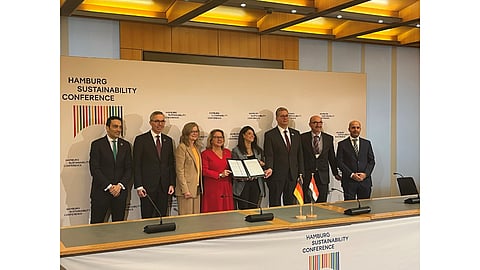

€30 million for Egyptian project: Norway’s Scatec has signed an agreement with the PtX Development Fund for a grant of €30 million ($33 million). This will provide partial financing for its Egypt Green Hydrogen project, which is estimated to have a total CapEx of €500 million ($548 million). This project has a 20-year green ammonia offtake agreement in place with Fertiglobe. It will be powered by about 270 MW of solar and wind power capacity. The PtX Development Fund is established by the German Federal Ministry for Economic Cooperation and Development and KfW. Managed by KGAL, it aims to support Power-to-X projects in developing and emerging countries. This is the 1st grant approved by the fund.
$250 million for Lebanon RE sector: Lebanon has secured $250 million from the World Bank to advance renewable energy capacity in the country by restoring electricity grid services. Lebanon’s economic and fiscal challenges have inflicted the operational and financial health of its electricity sector as well. The bank said it aims to support Lebanon in its efforts to improve services and financial viability to ensure a stronger economy. The Lebanese Foundation for Renewable Energy (LFRE) says the country relies on heavy fuel oil plants and diesel generators. It imports 97% of its energy, almost all of which is fossil fuel generated. LFRE has identified large areas on public and private land that it believes can host more than 13 GW of solar, 5 GW of wind and 2 GW of hydro and pumped hydro projects.
According to the International Renewable Energy Agency (IRENA), at the end of 2023, Lebanon’s total operational renewable energy capacity was 1.29 GW, out of which solar PV comprises 1.005 GW.
Financing for 50 MW solar plant in SA: Irish renewables company Mainstream Renewable Power has secured a financial close on its 50 MW Ilikwa Solar PV Plant in South Africa. Investec, the 30% equity partner on the project with 70% stakeholder Mainstream, has provided pre-construction development finance as well as debt and equity finance for its construction. The project is planned to supply power generated to multiple private commercial and industrial (C&I) customers under flexible, shorter-term power purchase agreements (PPA) in a new-to-market product called Renewable Energy Supply Agreements (RESA). Mainstream says this new product RESA opens up the energy market in South Africa as it paves the way for shorter-term energy contracts of between 5 and 10 years. Mainstream touts 12 GW of the ‘most advanced’ pipeline of projects in the country.
80 MW solar plant for metals producer: South Africa-based integrated platinum group metal producer Northam Platinum has entered a PPA for an 80 MW solar power plant in the country’s Limpopo province near Thabazimbi town. Northam will procure 220 GWh/year of solar energy from the project to be directly supplied for the mining and smelting operations at its Zondereinde mine on an off-grid basis. This will reduce the mine’s carbon footprint by 22%. This will also help it significantly save costs and reduce power supply risk. The 80 MW project is already under construction with power expected to be available from December 2025. The project is owned by an independent power producer (IPP) that comprises STANLIB Infrastructure Fund II, Royal Bafokeng Holdings Proprietary Limited and Energy Group.
It is financed by Nedbank Limited through its Nedbank Corporate and Investment Banking Division, and The Standard Bank of South Africa Limited through its Corporate and Investment Banking Division. Northam said this PPA aligns with its strategy to reduce its carbon intensity by 60% from a 2019 baseline by 2030, it is advancing additional renewable energy projects comprising solar, wind and battery storage projects.
1 MW solar plant in South Africa: Global EPC company Neosun Energy will build a 998 kW grid-tied commercial solar power plant for Dayizenza Mall in Nelspruit, South Africa. It said the project is expected to deliver monthly electricity savings in excess of 50% to 60% over its 40-year lifetime to the shopping mall. The cumulative savings will total ZAR 164 million ($9.33 million) over its lifespan. According to Neosun, the government’s Section 12B tax incentive will ensure an internal rate of return (IRR) of 53% and a payback period of 12 months.
